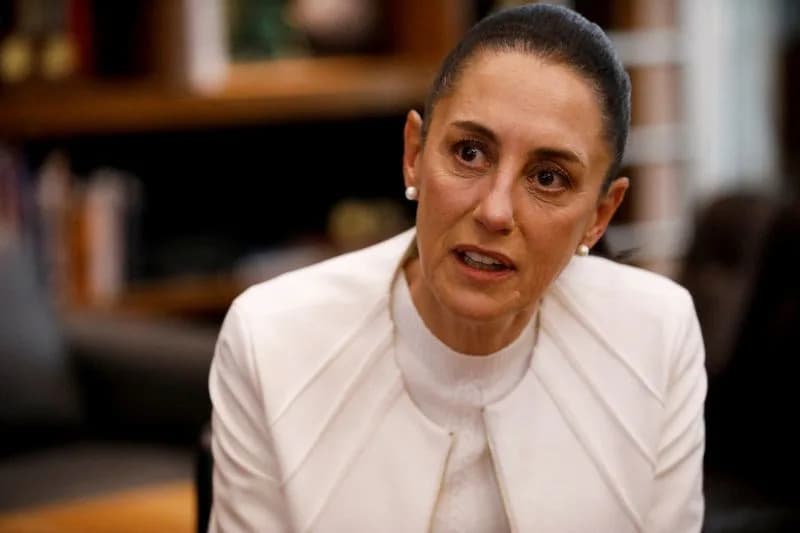The widely shared groping of President Claudia Sheinbaum spurred a presidential plan to tackle sexual violence nationwide, proposing harmonised criminal laws across all 32 states, measures to encourage reporting and specialised training for officials. The plan also includes public-awareness campaigns in transport, schools and workplaces. Activists welcome greater attention but warn that criminal penalties alone are unlikely to change long-term behaviour and call for sustained educational and cultural work to address toxic masculinity. Lawmakers say legal reform must be paired with prevention, training and community engagement.
After President Sheinbaum Was Groped, Mexico Unveils National Plan to Combat Sexual Violence

Swift political response after public assault on president
The widely shared video of a man groping Mexico’s president, Claudia Sheinbaum, has prompted a rapid policy response and renewed public debate about how to tackle pervasive sexual violence across the country. The incident — in which a man, appearing intoxicated, attempted to kiss the president and reached for her breasts while she walked in Mexico City — was recorded and widely circulated, drawing sharp public outrage and attention to everyday assaults faced by millions of Mexican women.
Key elements of the presidential plan
Citlalli Hernández, Mexico’s Secretary for Women, has presented a presidential plan that blends legal reform, training and prevention campaigns. Major proposals include:
- Harmonising criminal law so that sexual assault is clearly criminalised in all 32 states, in line with federal statutes that carry six to 10 years’ imprisonment for violent sexual abuse against vulnerable people or minors.
- Encouraging and facilitating reporting by survivors, including outreach and awareness drives to make complaint mechanisms more accessible.
- Specialised training for prosecutors, police officers, judges and other officials who handle sexual violence cases.
- Public-awareness campaigns aimed at preventing violence against women in public spaces, workplaces, schools and on public transport.
“We want to tell all Mexican women, girls, young women, and women in general that you are not alone, that when you experience any type of violence, it is important to report it,”
— Citlalli Hernández
Scale and urgency
Official statistics underline the scale of the problem: the national statistics agency reports that seven in 10 Mexican women and girls aged 15 and older have experienced at least one act of violence in their lifetime, including psychological or sexual abuse. So far this year, around 25,000 complaints of sexual harassment have been filed nationwide.
Such abuses can escalate: on average about 10 women are murdered every day in Mexico, and in the first six months of this year more than 500 women were killed in gender-based crimes classified as femicides. Lawmakers and government officials say legal reform must be paired with training, prevention and community work.
Debate: law versus long-term cultural change
Some politicians from the ruling Morena party, including Senator Martha Lucía Mícher and Congresswoman Rocío Abreu, support a combined approach of stricter laws and broad prevention efforts. Mícher emphasised that legislation alone is not enough: criminal classification, work with men, empowerment of women, awareness campaigns and better training for public officials are all needed.
“You have to classify the crime as a serious offense. You also work with men. You also empower women. You also conduct awareness campaigns. You also train public officials, police officers, government officials and judges. And you also do great work with the community.”
— Senator Martha Lucía Mícher
However, feminist activists and campaigners welcomed the attention but warned that simply increasing criminal penalties may not change behaviour. Estefania Vela, executive director of the feminist group Intersecta, described changes to penal codes as an easy but insufficient response, while activist Oriana López argued there is little evidence that harsher sentences alone deter abusive behaviour long-term. Activists urged stronger investment in education and cultural change to reduce tolerance for abuse and to challenge toxic masculinities.
“There has to be cultural change in masculinity. What are we doing so that men have a masculinity that isn’t toxic, that isn’t violent, that isn’t invasive — so that they’re not abusive?”
— Oriana López
Looking ahead
The plan has opened a national conversation about how best to protect women and survivors, and whether Mexico can translate renewed political attention into durable, practical changes on the ground. Skeptics note years of activism with only limited institutional change; proponents stress that combining legal reform with education, community work and better policing could offer a comprehensive path forward.
Help us improve.




























